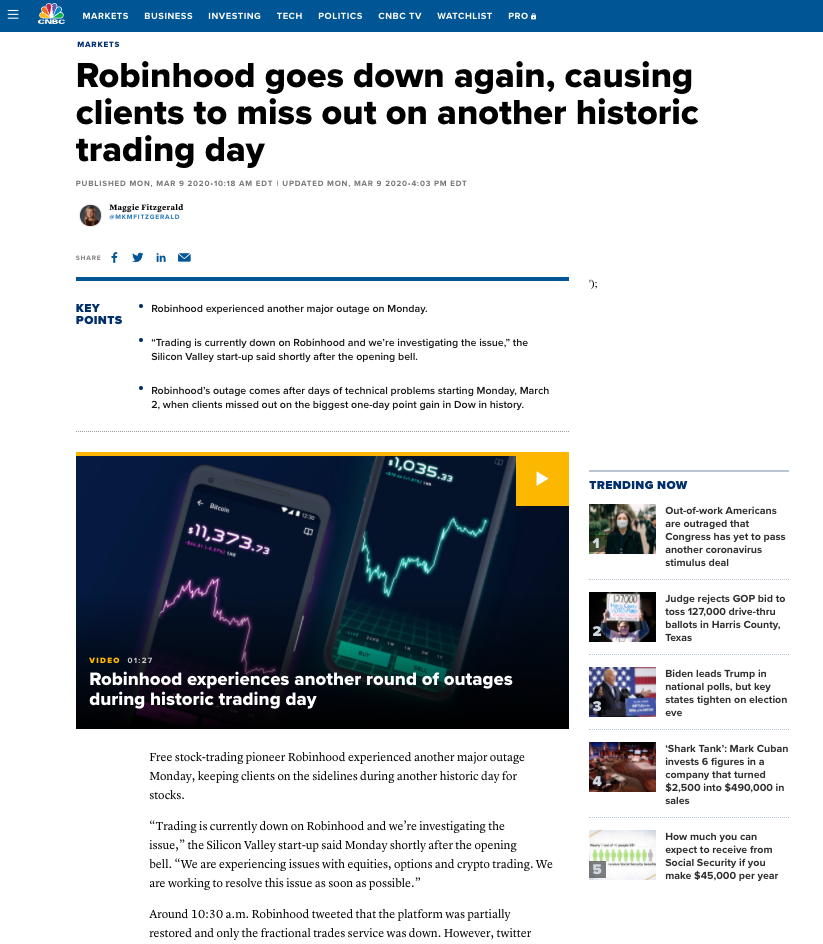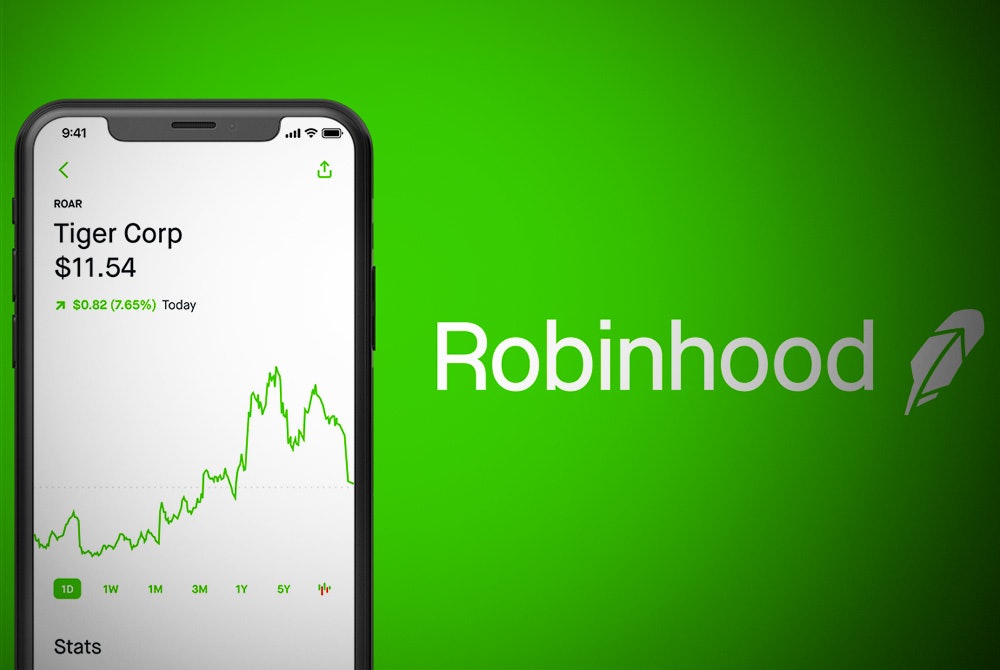Robinhood has brought free trading and marginal shares to the masses. Like its namesake, Robinhood, the app makes it easy to access the domains of the rich via the stock market.
With 13 million users and the ability to start trading from your smartphone in a matter of seconds, the Robinhood tech platform has done what great technology disruptors do—they remove humans from the process, and make things faster, cheaper, and more efficient.
Back in the 1980s and 1990s, trading on Wall Street required a physical broker to call on the telephone to get the current price on a stock and to book a trade. Your broker would confirm the volume of your trade and they'd organize an order to buy or sell. Finally, they'd call back to confirm that the order went through.
Buying a single $500 share of WellsFargo stock required $500 of actual cash that you needed to send to the broker for the trade.
For each trade, the broker charged a fee/commission to process your share transactions (buying and selling).
Not anymore.
Robinhood and others have disrupted stock market access and made this process much more efficient.
How Robinhood Works
Robinhood gives the millennial generation instant access to the stock market, through an app on your smartphone and with zero commissions.
It's powerful, addictive, and has democratized access to the stock market for all people, taking just a few minutes to start trading.
With its huge computing power, Robinhood has even managed to allow users to have fractional shares. With Robinhood, you don't even need $500 to buy a full share in Tesla as you can spend $100 and get 1/5 of a share.
If it seems too good to be true, you're probably wondering, "What's the catch?"
It's a totally legitimate online broker and offers a great service, but Robinhood gets itself in news for many reasons.
Controversy Surrounding Robinhood
Robinhood is regularly in the media and is constantly under fire. Here are some of the reasons that people are sometimes skeptical of Robinhood and may think it is a scam.
Outages
When you start trading, you are buying and selling to try and make a profit, and access to your online brokers is essential to executing your trades. In March of 2020, as the market crashed, and on some other days where the markets rallied, Robinhood users rushed to their Robinhood accounts to buy and sell stock during this volatility. However, Robinhood's app seized up.
This caused immense frustration. March of 2020 was a particularly volatile time and some users were disappointed with the outages. Some people who used Robinhood complained that the lack of access caused them to feel like they lost money/opportunities and starting saying the app was a "scam." However, Robinhood was quick to fix the errors and has been relatively stable ever since.
Simply going down due to massive use is not a scam and Robinhood is legit.

Robinhood's Revenue Model
Robinhood has also been criticized for its revenue model (remembering that users don't pay for commissions). Robinhood sells trading information to high-frequency traders who pay Robinhood for visibility of their order flow.
Some people interpret this as allowing front-running of trades (which is illegal) but this is not the case.
High-frequency traders place thousands of buy/sell orders every day and try to take advantage of movements in the price of a stock. For example, imagine big investors (like pension funds or investment banks) acting like big, slow whales. When traders know that these whales are buying or selling bulk amounts of a particular stock, they can act faster and take advantage of this trend. For high-frequency traders, they like to gain intelligence on who is buying/selling to predict how strong the trend is—they pay firms for this information.
If a big pension fund can be seen to be picking off a particular stock every day, the traders know that there is a strong positive momentum as the pension fund takes up its position. However, if there is a daily spike in a stock price but that quantity of buying/selling is coming in from Robinhood day traders, the support does not seem as strong and persistent. The high-frequency firms can then interpret that the underlying support of the trend is not there as Robinhood users all act independently of each other. If the trend is coming from Robinhood, the trader can interpret that differently to an investment bank or pension fund buying in.
There are rules to protect individuals so that they are not abused (like front running) and there is a legitimate reason why Robinhood's data is valuable and that selling it is legitimate.
Robinhood sells this aggregated order flow to high-frequency traders and this is aggregated (unlike the more nefarious personal profiling that Google and Facebook do) so this practice does not impact you as a casual investor and user of Robinhood. The sale of the order flow is contentious but does not make Robinhood a scam—it is important to note that some online broking firms like Interactive Brokers don't sell their order flow.
Our Verdict: RobinHood is Legit
Robinhood is not a scam. It is a legitimate trading app that has democratized access to the stock market for millions and millions of people. In fact, Robinhood is now one of the largest brokers around.
However, as people are beginning to figure out all over the internet, if you're not paying for the product, you are the product. Your trading data is being sold by Robinhood, but E-Trade and TD-Ameritrade also sell this data. You may not get the best execution price 100% of the time but this is a zero-commission platform and does the job very well.


Comments